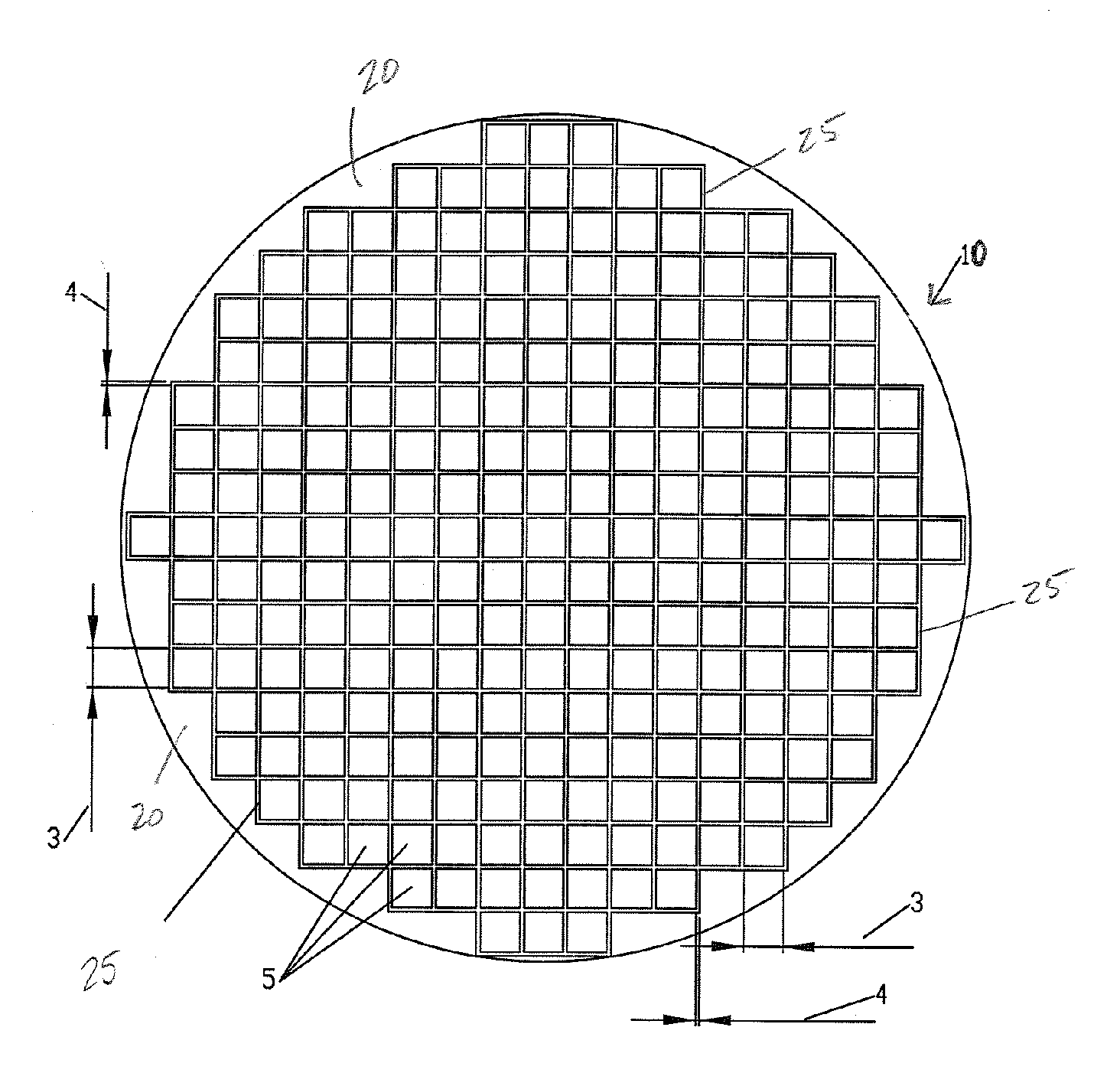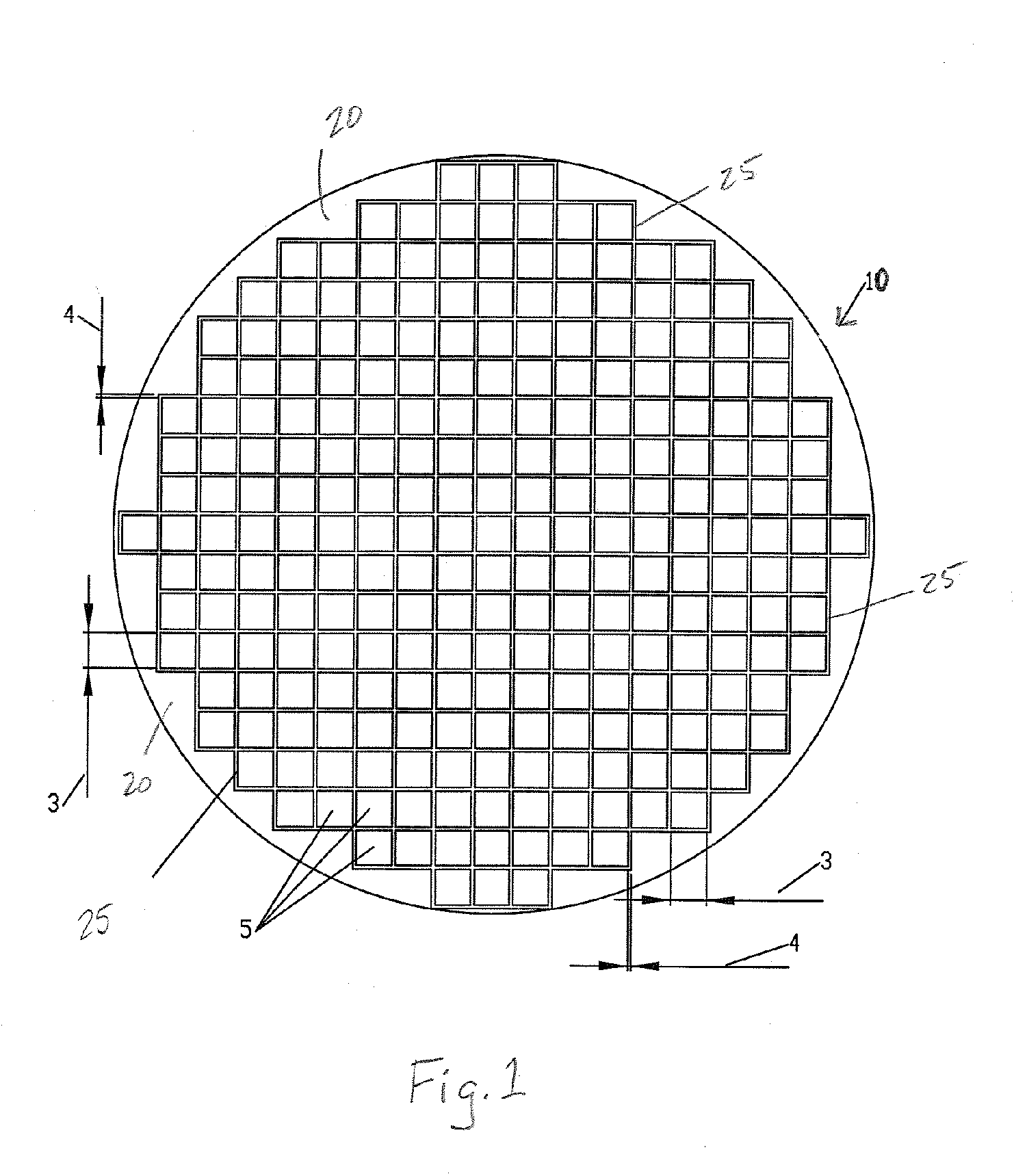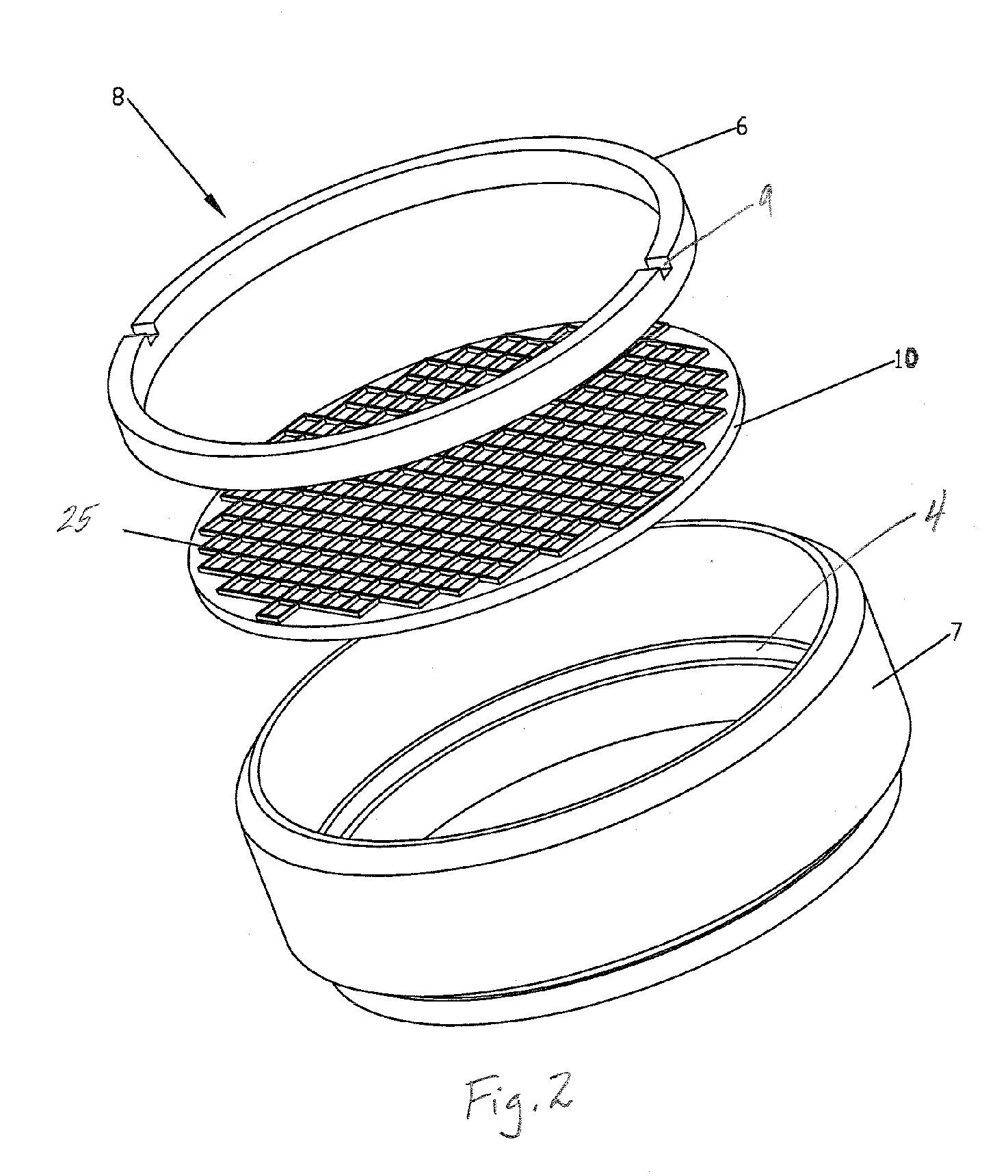Atmospheric stabilizer filter and method
a stabilizer filter and atmospheric technology, applied in the field of optical filters, can solve the problems of reducing increasing the amount of light, so as to achieve the effect of improving the resolution of optical systems, reducing the cost of adaptive optics, and reducing the size of adaptive optics
- Summary
- Abstract
- Description
- Claims
- Application Information
AI Technical Summary
Benefits of technology
Problems solved by technology
Method used
Image
Examples
Embodiment Construction
[0021] As shown in FIG. 1, the Atmospheric Stabilizer Filter plate 10 is fashioned from a quartz substrate 20. Lines 25 are etched on an exterior surface of the quartz substrate 20, such as by photoetching. In this embodiment, the lines are etched to form a screen with the line width 4 of approximately 0.5 micron (0.5×10−6 meters) and providing a space 3 between each adjacent line of approximately 6 microns (6.0×10−6 meters). The ratio of line spacing to line width is believed to be optimal if kept in the 6 to 1 to a 12 to 1 ratio. The spaces 5 between adjacent perpendicular lines permit the transmission of coherent essentially planar wave fronts through the filter. It is believed that other geometric designs such as hexagonal openings between adjacent lines or circular openings can be substituted on the existing plate design without departing from the spirit of this invention.
[0022] As shown in FIG. 2, retainer ring 6 used to hold the Atmospheric Stabilizer Filter assembly 8 in th...
PUM
 Login to View More
Login to View More Abstract
Description
Claims
Application Information
 Login to View More
Login to View More - R&D
- Intellectual Property
- Life Sciences
- Materials
- Tech Scout
- Unparalleled Data Quality
- Higher Quality Content
- 60% Fewer Hallucinations
Browse by: Latest US Patents, China's latest patents, Technical Efficacy Thesaurus, Application Domain, Technology Topic, Popular Technical Reports.
© 2025 PatSnap. All rights reserved.Legal|Privacy policy|Modern Slavery Act Transparency Statement|Sitemap|About US| Contact US: help@patsnap.com



